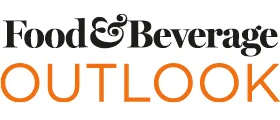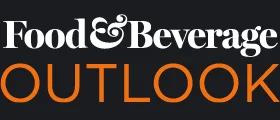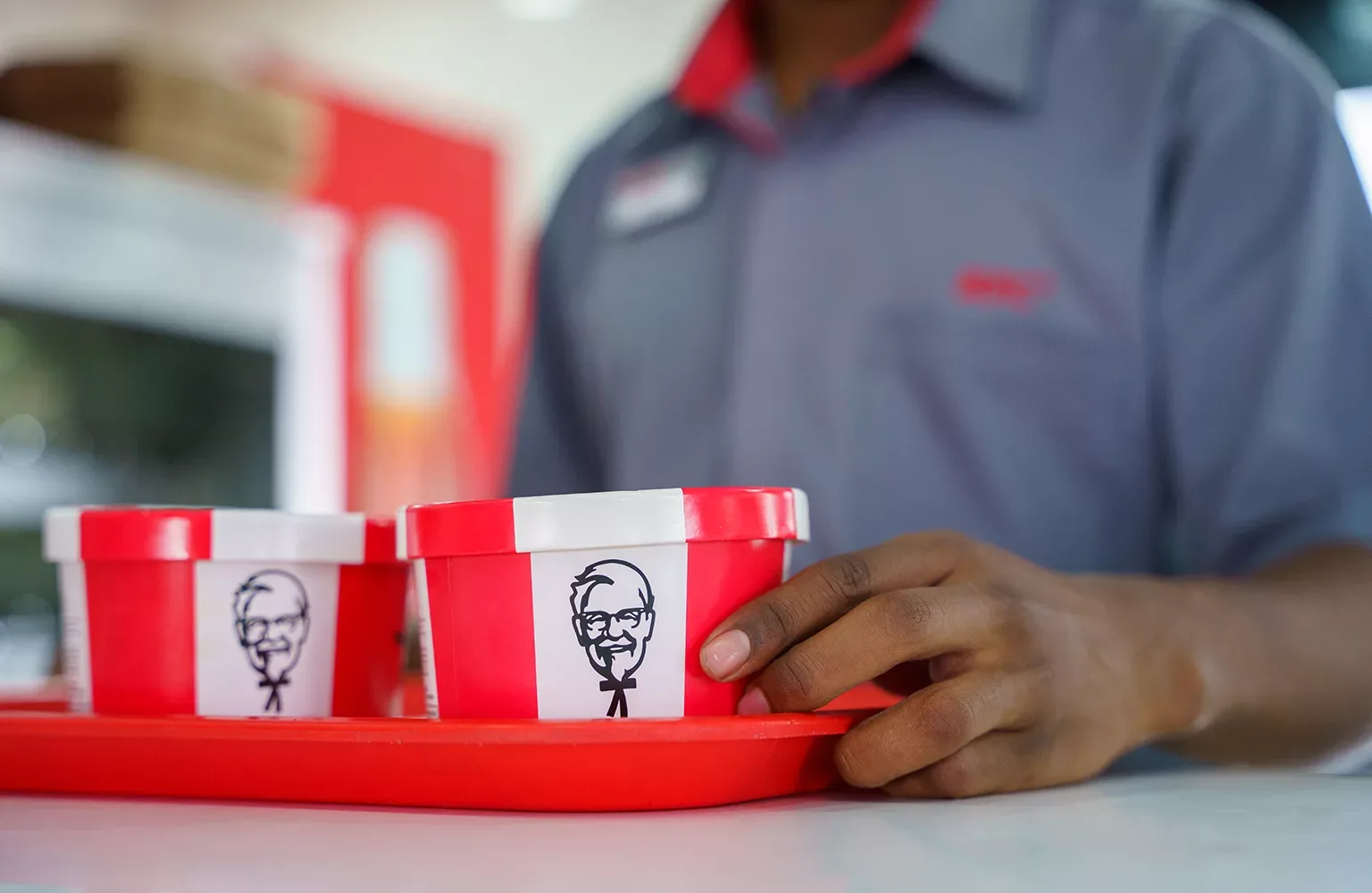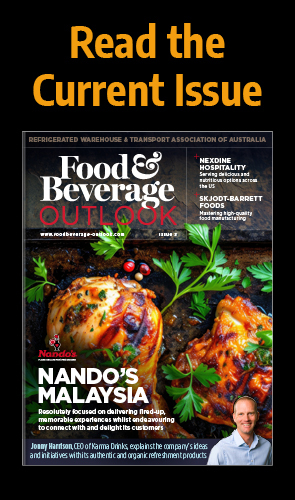Regional KFC franchisee Kuku Foods East Africa is unwaveringly committed to offering exclusively Finger Lickin’ Good chicken for its customers. Jacques Theunissen, CEO, highlights how the company and its KFC restaurants are key to accelerating youth employment in the region.
HATCHING THE LEADERS OF TOMORROW
Jacques Theunissen, CEO of KFC’s franchise holder in East Africa, Kuku Foods East Africa (Kuku), has always had a keen interest in the hospitality industry, originally stemming from his weekend job as a waiter at school.
Following the completion of his university degree, Theunissen’s love for the culinary scene drew him to Putney in London, where he worked as a restaurant manager.
However, in a turn of events, the owner of the establishment he worked at in his younger years asked if he wanted to buy the restaurant from him. After consulting his father, Theunissen accepted the offer, marking a new chapter in his career.
“My passion continued to grow as the days progressed. I worked seven days a week, 365 days a year. Subsequently, I franchised the business and opened another two restaurants,” Theunissen opens.
After exiting the company, he was invited to take up the position of Area Manager with KFC in Cape Town, South Africa, where he jumped at the opportunity to work with such a significant brand in the global quick service restaurant (QSR) space.
After five years in this role, Theunissen briefly transferred to another company where his passion for the African food and beverage industry truly blossomed, before finally returning to the internationally beloved chicken restaurateurs.
“I went back to KFC as I realised that it was the only brand for me. I have been in the restaurant business my whole working life and I love it more every day. It is an industry that in many ways is looked down upon in the corporate world, but very few realise the actual impact we make on the ground,” he notes.
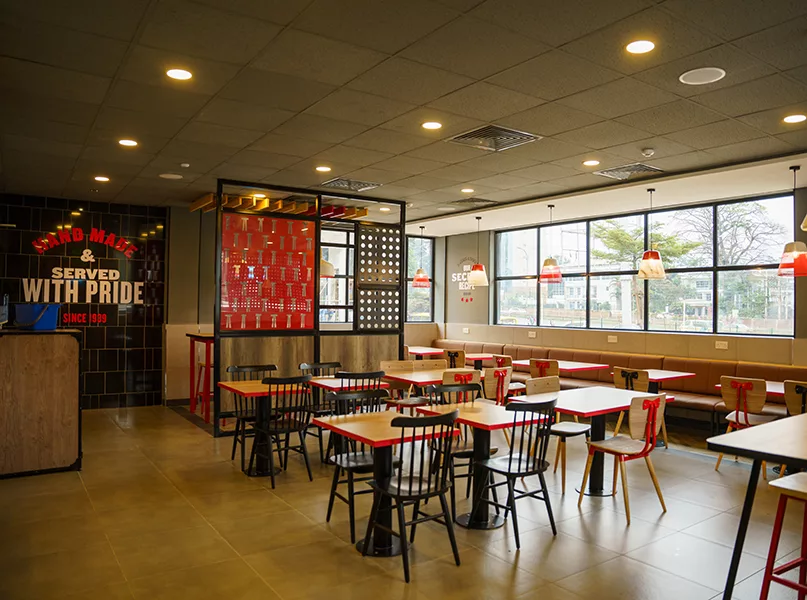
BUILT ON PEOPLE
Theunissen’s love for the brand means he is ideally positioned at the helm of Kuku, the KFC franchisee for Kenya, Uganda, and Rwanda.
Since opening its first restaurant in Junction Mall, Kenya, in 2011, the business has grown substantially to now own and operate 55 KFC locations across East Africa, with big ambitions to continue expanding the brand in the years to come.
As a company built on people, Kuku currently employs over 1,300 individuals across the region who are the secret to its success.
“Kuku is a high-performance business, driven by our heart-led culture. We are deeply passionate about the KFC brand and our customers, and strongly believe in supporting regional industry by localising most of our supply chain,” Theunissen explains.
In line with this commitment, the company is in the process of delivering delectable chicken meals in six to eight new restaurants over the coming year.
Kuku prioritises local recruitment when opening a new restaurant, aiming to create 20 to 30 direct jobs alongside several indirect roles with its local suppliers as demand increases.
“It is part of our mission to ensure that KFC is accessible to as many people as possible in the regions where we operate, as everyone deserves to experience our Finger Lickin’ Good chicken,” he adds.
Furthermore, Kuku leverages a localised supply chain to ensure the best flavours and adherence to food safety standards across its restaurants.
This is a key contributor to its growth as partnering with local contractors positively impacts the business from a working capital perspective, whilst also mitigating the volatility of local currencies, making significant contributions to the economies in which it operates.
Food safety is a non-negotiable factor in the business, to the extent that Kuku has numerous systems and checks in place to guarantee that every product served over the counter is completely traceable.
As such, quality is ingrained throughout the company, as evidenced by the several feedback mechanisms in place that alert staff if the quality and safety standards of any food products have been compromised.
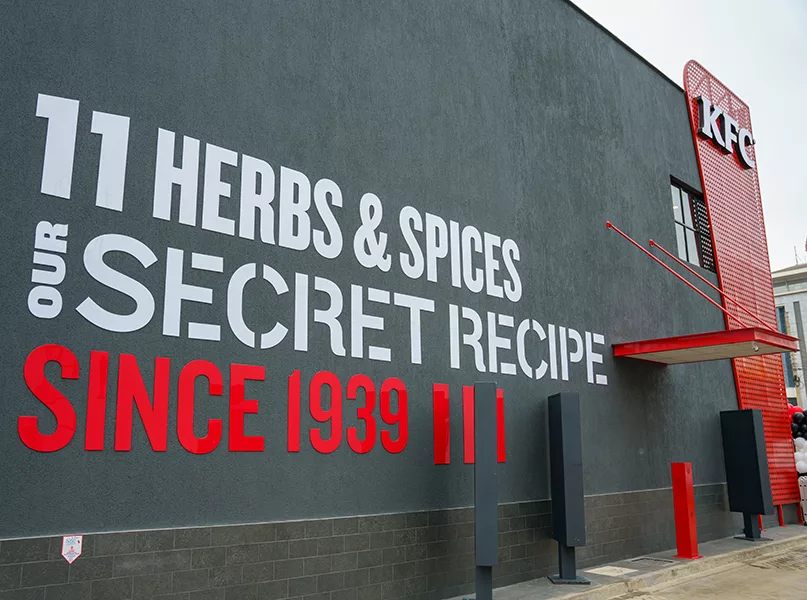
RISING STARS
Kuku and the KFC brand have become very important in recent years to the development of East Africa’s growing young workforce, particularly since youth unemployment continues to be an increasing issue in the region.
Consequently, the company is proud that 90 percent of its workforce is below the age of 30, whilst many of those in management roles have developed from team member positions.
This is a personal win for Theunissen, as many individuals have progressed to find themselves running restaurants, areas, or even entire KFC country divisions.
“I am a big believer in the idea that you cannot tell someone how to do something if you have not done it yourself, and through the internal development processes that we have in place, every promoted person has done the work of the team they are leading,” he shares.
In fact, Kuku has seen first-hand the vital impact that its internal development processes have had, as many people from diverse backgrounds have now become remarkably successful.
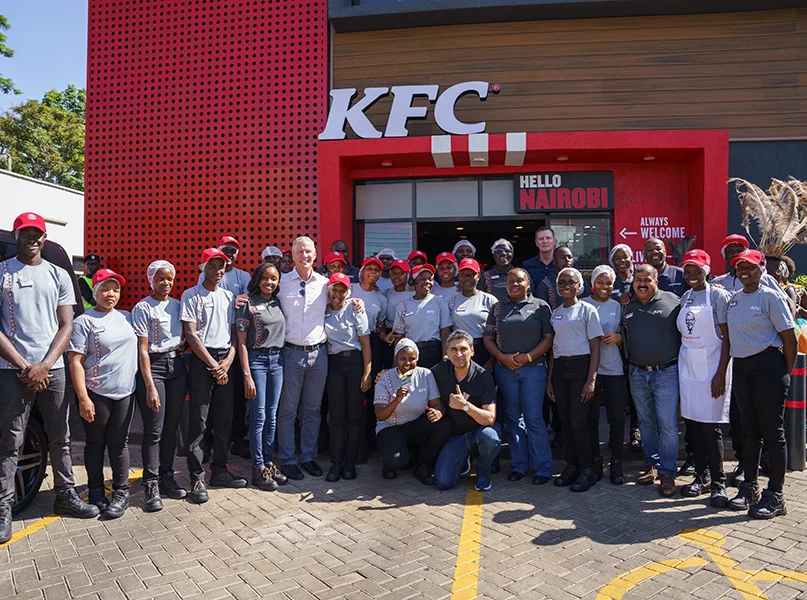
“Businesses have a responsibility to make a difference. What bigger impact can you have than creating employment opportunities in a community and providing each team member with the skills and tools necessary to develop personally and professionally?”
Moreover, Kuku believes strongly in diversity, equity, and inclusion, ensuring that everybody has a seat at the table. As such, the company has fostered an environment in which its staff can grow, regardless of age, gender, or qualifications.
Currently, half of Kuku’s workforce comprises women, a statistic which stems across management and leadership teams. The company also participates in many fantastic programmes such as Women on the Move, which prepares talented employees both personally and professionally for their journey ahead.
“Across Kuku and KFC, our winning culture is the recipe for our success. Over the years, we have made sure that our employees have a voice and a seat at the table, as well as guaranteeing that we walk the walk as a leadership team,” Theunissen assures.
Kuku has also introduced mandatory training initiatives that equip the entire staff base with the necessary knowledge and skills to efficiently execute the required standards consistently.
“We have received numerous awards over the years, and I am immensely proud to say that we were recognised as the Heart-Led, Inclusive Culture Leader of the Year at the 2023 Global Franchise Convention,” he smiles.
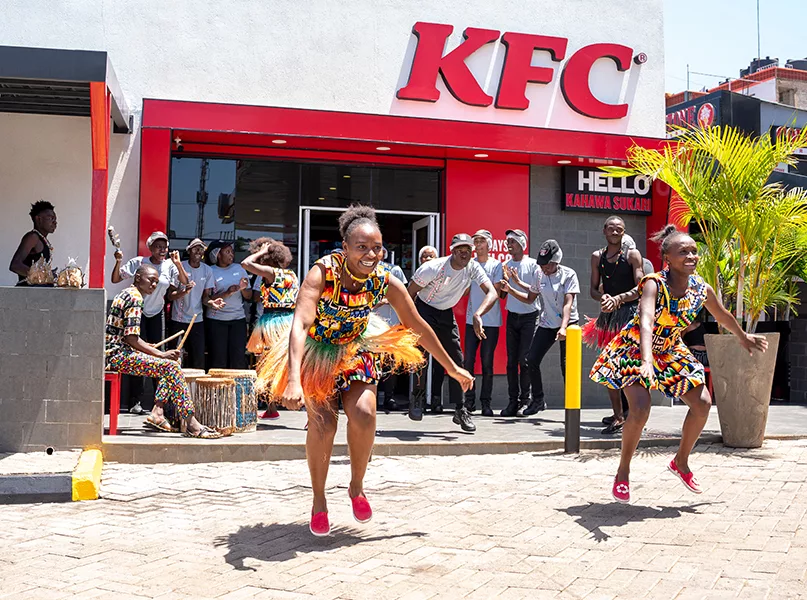
FINDING VALUE IN LOCAL SUPPLIERS
Since its inception, Kuku’s supply chain has been the lifeblood of the business as it not only ensures the company’s success but also guarantees that it can efficiently operate on the world stage.
This is illustrated by the company’s appointment of a Quality Assurance Manager who works across the supply chain at all levels to ensure its counterparts are 100 percent compliant with international food standards and audited by third-party compliers.
Furthermore, its suppliers not only work with KFC but also other supermarket retailers in modern food trade. Therefore, by working in conjunction with these suppliers to improve food safety to global standards, the company’s reach can be felt far beyond its own customer base.
However, Kuku has not been immune to the pressures caused by increasing input costs that have resulted in recent market depreciation. Nevertheless, a localised supplier strategy helps mitigate the effects of currency devaluation.
“Our local suppliers have been incredibly supportive during these times, and we partnered with these businesses to tackle the problem together and ensure that we can continue to make our products accessible to our customers,” Theunissen expands.
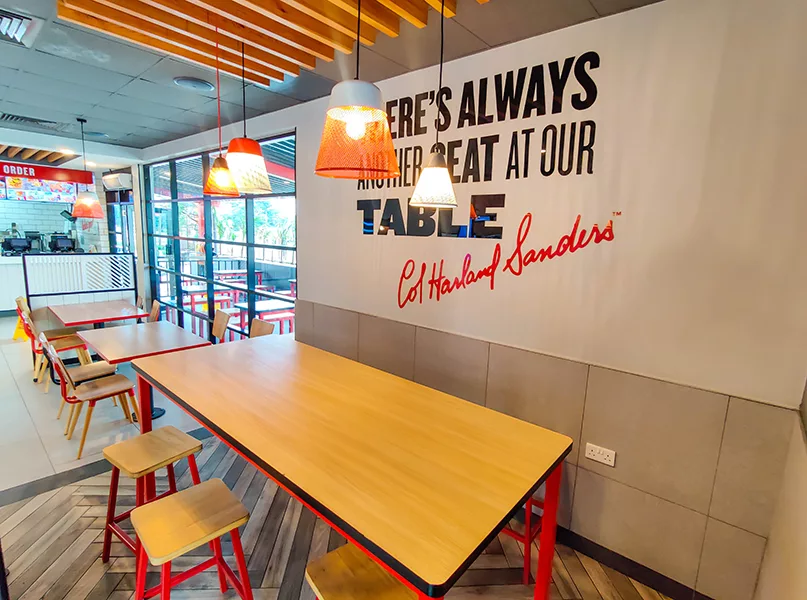
Kuku has additionally focused on automating certain systems to help navigate industry challenges, enabling it to obtain accurate and reliable data and ensure quick decision-making.
The company’s state-of-the-art systems are also supported by an innovative mindset – one of Kuku’s most valuable assets in uncontrollable market conditions and an expansive supply chain.
This is most aptly illustrated by Kuku’s implementation of its Sales Overnight and Brand Overtime (SOBO) strategy, which helps guarantee that the business remains relevant in all consumer sectors, ultimately making the brand more accessible and distinctive in its service and product offerings.
For instance, Kuku was the first QSR organisation in Kenya to introduce self-service kiosks across a number of restaurants in 2023 and will continue to roll out this technology across its expanding portfolio in the coming year.
Additionally, the introduction of home delivery services is transforming its customer interactions, becoming integral to making KFC’s delectable dishes more accessible and convenient.
“As a brand, we must keep things exciting and ensure that we exceed our consumers’ expectations every day, one transaction at a time.”
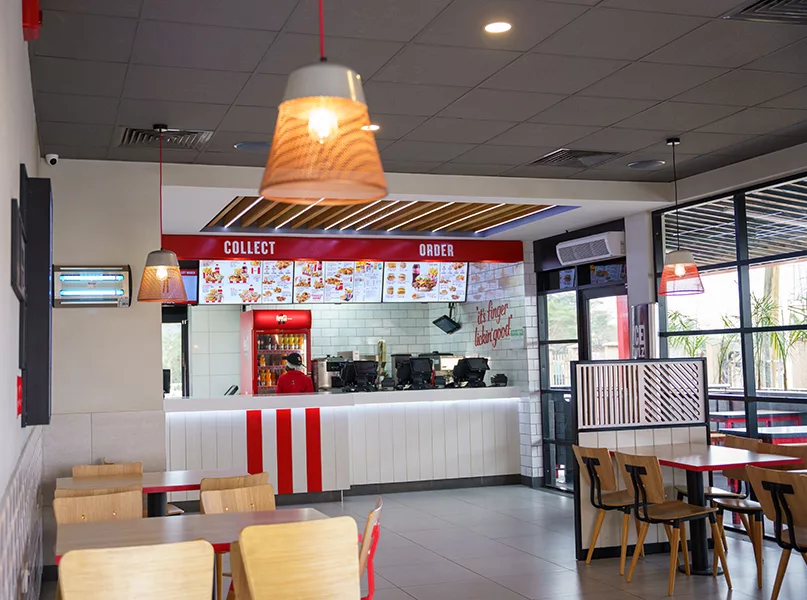
DELIVERING ON A PROMISE
Kuku is set to continue its trajectory of growth and effectively navigate industry challenges by utilising the local workforce and supply chain communities that actively benefit from socioeconomic growth.
Meanwhile, the customer experience will remain a top priority for the foreseeable future, as the company strives to exceed their expectations and consistently deliver on its service and quality promise.
“Our customers must leave with a smile every time they visit; this is non-negotiable,” Theunissen concludes.
On top of this, the company will continue to expand its core mission in youth employment and people development with programmes that have been created to further build exceptional staff capabilities and steer the business towards growth.
KUKU FOODS EAST AFRICA PARTNERS

